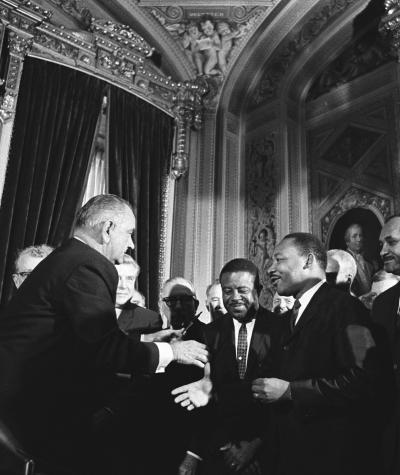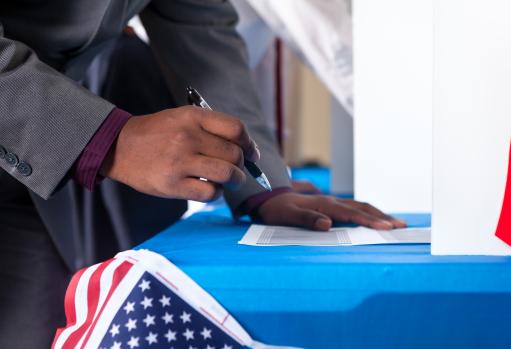President Lyndon B. Johnson signed the Voting Rights Act (VRA) into law on August 6, 1965, exactly 55-years-ago today. The best way to honor this anniversary would be to offset the damage done by the U.S. Supreme Court’s decision to gut the VRA by restoring the law to protect communities of color from assaults on their voting rights.
The recent death of the civil rights leader and voting rights icon Rep. John Lewis highlights the need for a new generation of Americans to take up the mantle of protecting and expanding access to the ballot. Due to the challenges posed by the coronavirus pandemic, we must act now to prevent any further disenfranchisement.
A new VRA would help with this by setting up a system of preclearance. In the original VRA, preclearance required states and localities with long histories of suppressing voters of color to gain approval from the federal government before instituting new voting rules.
This extra check was successful in identifying discriminatory voting practices before they could be implemented and preventing disenfranchisement from occurring.
As a result, the number of voters of color and elected officials of color swelled. The number of registered Black voters increased from less than a million in 1965 to nearly 3.6 million in 1986. These Black voters then elected Black officials who could better represent their interests. In the mid-1960s, there were about 70 Black elected officials in the South, but by the turn of the 21st century, there were 5,000.
Due to its success, Congress reauthorized the VRA five times with strong bipartisan support – most recently in 2006 by a vote of 390-33 in the House and 98-0 in the Senate. During each reauthorization, Congress held hours of hearings that demonstrated the persistence of racism in our democracy and the continued effectiveness of the VRA in combatting it.
But then the U.S. Supreme Court ruled to gut the VRA in the 2013 case Shelby County v. Holder by invalidating the formula used to determine which states and localities should be subject to preclearance.
Consequently, communities of color have experienced more voter suppression in the last seven years. States and localities have reverted to discriminatory practices such as restrictive voter ID laws, polling place closures, and purges of voters from state voter rolls that make it harder for Black, Brown, Asian, and Native American people to cast their votes.
COVID-19 is exacerbating these problems. States are using this public health crisis as another excuse to close even more polling places while limited access to or delays in postal service are preventing voters of color from having their voices heard.
However, a bill called the John Lewis Voting Rights Advancement Act, or H.R. 4, would address these problems. It would restore the VRA through a new preclearance formula. This formula would impose oversight only on states and localities that have been shown to have discriminated against voters of color between 10-15 times in the last 20 years.
Last December, the House passed H.R. 4, and the Senate should do the same. Policymakers have a responsibility to act now to ensure that all Americans can participate in the November general election.
Campaign Legal Center (CLC) has brought cases in several states that would have been included in the coverage formula under a fully functional VRA on behalf of historically marginalized communities. And to make the most progress possible under the current system absent a fully functional VRA, CLC staff has been advocating for states to pass their own VRAs to protect communities of color from electoral discrimination.
Every eligible voter should be able to exercise their right to vote and make their voice heard in our democracy.

